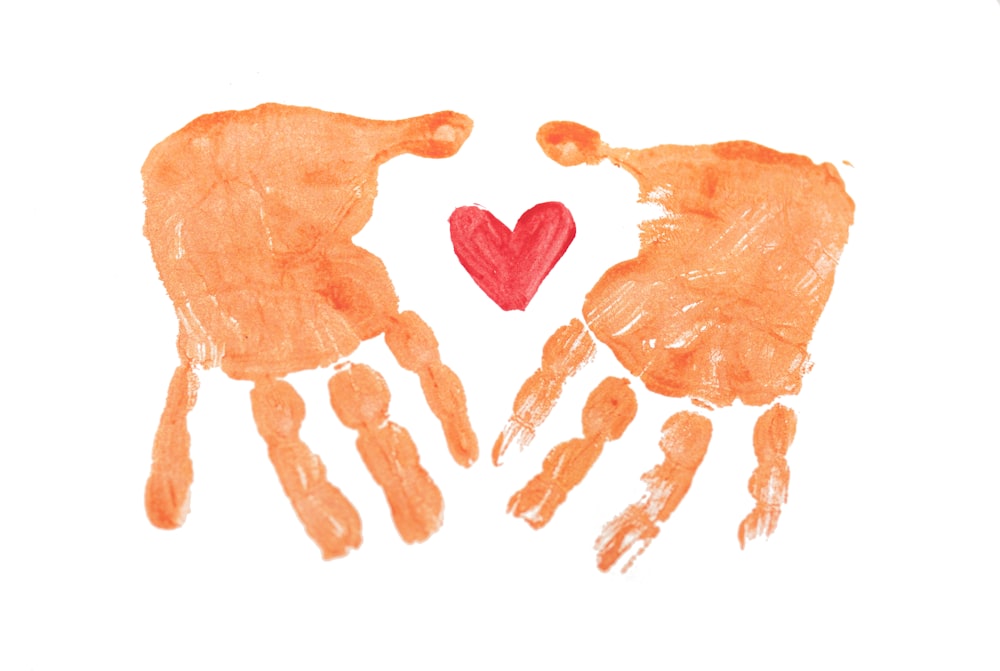Rare Disorders NZ: June update
24 Jun 2023

In this issue
- Berl report launch
- Questions in the House
- Rare Disorders NZ at GPCME
- Nurses webinar
- Election 2023
- The Therapeutic Products Bill protest
- Supporting the urgent call for newborn screening of SMA
- Rare Disorders NZ proposal for a definition of a rare disorder
- In the media
- Thank you
- How you can help us help those with rare disorders across New Zealand
Introducing Rare Disorders NZ’s new Chief Executive, Chris Higgins
I’m both delighted and feel privileged to have been appointed as Rare Disorders NZ’s Chief Executive. People who live with rare disorders are often short changed by New Zealand’s health, social support and community systems and I am committed to doing my best to change things so that people with a rare disorder benefit from world class therapies and support, and have the best possible opportunities to live both well and long.
I began my career as a health services researcher and my background since then includes senior management roles with the Northland, Waikato and Lakes health boards, and leadership roles in a variety of community, not for profit and advocacy organisations including Presbyterian Support (Northern), Spectrum Care, Brain Injury Auckland, Muscular Dystrophy NZ and New Zealanders for Health Research. I have also served as a Rare Disorders NZ Board Trustee, and am excited to be returning to the organisation as its Chief Executive. I come into the role with a firm belief that our best successes come from working together and amplifying each others’ voices, and I very much welcome any feedback which both celebrates our successes and identifies where we can do better, so please do not hesitate to reach out if and when you need to.
Ngā mihi nui,
Chris

Berl report launch

"Without data we cannot know the size of the problem."
On 10th May, Rare Disorders NZ launched a new report, 'Rare Disorders Insights Report: Pathways towards better health outcomes'. Rare Disorders NZ tasked BERL to obtain an insight into the likely prevalence of rare disorders in New Zealand, considering both diagnosed and undiagnosed incidences. The report found that it is not possible to accurately estimate the prevalence of rare disorders in the country due to the low quantity of data available. With the attendance of officials from the Ministry of Health, Ministry of Disabled People, Pharmac, and MPs from all major parties, as well as health professionals, pharmaceutical companies, academics, patients and patient advocates, we felt this reflected wide-reaching recognition that rare disorders can no longer be ignored in our health system and action needs to be taken.
Questions in the House

Following the launch of the Berl report, Rare Disorders NZ was able to get independent MP Dr Elizabeth Kerekere to ask Minister of Health Dr Ayesha Verrall a question in the House on what steps are being taken to improve data collection on rare disorders.
You can watch this segment of question time in the video here.
Rare Disorders NZ at GPCME

Rare Disorders NZ was at the General Practice Conference & Medical Exhibition (GPCME) in Rotorua in early June to bring attention to rare disorders and raise our organisation's profile among GPs and registered nurses. We had a stand at the medical exhibition with flyers and brochures from a number of patient groups in our collective and were able to answer lots of questions and provide information about the rare disorder sector. We also included a flyer in each delegate’s conference bag about Rare Disorders NZ.
Nurses webinar

On 5th May, Rare Disorders NZ hosted a webinar for nurses in New Zealand working in the rare disorder field. The webinar was led by two nurses, Sharron Meadows and Rebecca Nicol, who attended a global conference for nurses to establish a global nursing network in rare and undiagnosed diseases, Connecting Nurses Globally – A Roundtable in Rare and Undiagnosed Diseases, in Singapore. The webinar was an opportunity to share what they had learned and encourage other nurses to join the global network.
Read more about the global nursing network here.
Following the webinar, Rare Disorders NZ has established a rare disorders nurse group to help facilitate connections amongst our rare disorder nursing community to support engagement with each other.
If you know a registered nurse or a trainee nurse with an interest in rare disorders, please ask them to get in touch if they would be interested in finding out more about our rare disorder nurse group: Kim.mcguinness@raredisorders.org.nz
Election 2023

Rare Disorders NZ is gearing up for the 2023 election. We have sent out our election manifesto to all the major political parties asking them to respond to us with where they stand with regards to improving the health and wellbeing of those impacted by a rare disorder. We look forward to sharing their responses on our website and through social media.
We have also drafted template letters for people in the rare community to request a meeting with their local MP. This is an opportune year to get MPs backing issues important to the rare disorder community and get some political traction. We have drafted three separate letter templates respectively focusing on the following issues:
- The need for better data collection on rare disorders
- Improved medicine access for rare disorder medicines
- The need for a Rare Disorder Centre of Excellence in New Zealand
Download the letters and supporting documents here.
The Therapeutic Products Bill Protest

On the 7th June, Rare Disorders NZ attended the Patient Voice Aotearoa's protest against the Therapeutic Products Bill to represent those with a rare disorder who could be impacted if this bill goes through in its current form.
The Therapeutic Products Bill, introduced to parliament at the end of 2022, will ultimately replace the Medicines Act 1981. However, as it currently stands, Rare Disorders NZ and a number of other patient advocacy groups, have a number of concerns as it could lead to further barriers to accessing medicines for rare disorders and prevent advocacy to fund new medicines.
You can read about our concerns in our submission to Parliament on the Therapeutic Products Bill here.
Rare Disorders NZ, along with 72 other organisations support this open letter to the Government asking them to pause proceeding with the Therapeutic Products Bill due to concerns about the current wording of the Bill.
Since the protest, a revised second version of the Bill has been released, which addresses some of our concerns, and we’re now in the process of reviewing it to identify any remaining issues which will require further RDNZ advocacy. You can view the revised version of the Bill here.
Supporting the urgent call for newborn screening of SMA

Rare Disorders NZ has been supporting the work by advocacy groups and health professionals to get urgent action on including screening for SMA on the newborn heel prick test, as up until now, no progress has been made to include spinal muscular atrophy in the newborn screening programme, despite Pharmac approving two life-saving therapies for pre-symptomatic treatment of the degenerative disease.
We have written to the Minister of Health requesting that she urgently look into this, and we arranged coverage on RNZ’s Morning Report. We also sent out a media release, which you can read here.
Rare Disorders NZ proposal for a definition of a rare disorder

As we work with Manatū Hauora - the Ministry of Health on the development of a national rare disorder strategy, a central piece of this work is establishing an official definition of what is considered a rare disorder in New Zealand.
Rare Disorders NZ believes it is imperative that New Zealand adopts the widely held and internationally established definitions; that a rare disorder is defined as affecting fewer than or equal to 1 in 2,000 persons, and that ultra-rare disorders are defined as affecting fewer than or equal to 1 in 50,000 persons.
By using these definitions, not only will they help us in our quest to capture data and measure the cost of rare disorders on the health system and wider society, but they enable us to align internationally, which will be beneficial in international collaboration, inclusion in research and in bringing coherency and comparability to our practices and policies on the international stage.
Rare Disorders NZ has submitted to the Ministry of Health (Manatū Hauora) our proposal for what the definitions should be, which you can read here.
In the media
Mother accused of medical abuse for seeking help overseas for sick daughter
'Screening at birth could save lives' says mother of child diagnosed with spinal muscular atrophy
James interviewed for Newstalk ZM news bulletin, 13 May 2023: ‘Blind spot’ in health system due to lack of data on rare disorders (no link available)
Thank you

We would like to acknowledge and thank the following sponsors for funding key projects for us over the past two months:
- Frimley Foundation
- Nikau Foundation
- Kiwi Gaming Foundation Ltd
- Pfizer Australia
How you can help us help those with rare disorders across New Zealand
Donate
We’re a small organisation with a big heart. We rely on grants and donations to continue improving information and support for patients, their whānau and professionals, as well as to advocate for systemic changes to benefit the entire rare disorder community.
By donating to RDNZ, you’re helping us to provide connection, guidance, advice and resources to those impacted by a rare disorder and for 150+ support groups, and enabling us to represent the rare community’s voice at the highest levels to improve healthcare and wellbeing for people and their whānau living with a rare disorder.
To make a one-off donation to Rare Disorders NZ visit our Givealittle page.
Become a regular donor to Rare Disorders NZ through One Percent Collective
Join us on social media.
Please connect with us on social media and help us to reach more New Zealanders by sharing our posts!
Please get in touch if you have any questions relating to any articles in this newsletter or if you have anything you wish to discuss.
Kind regards,
The team at Rare Disorders NZ



